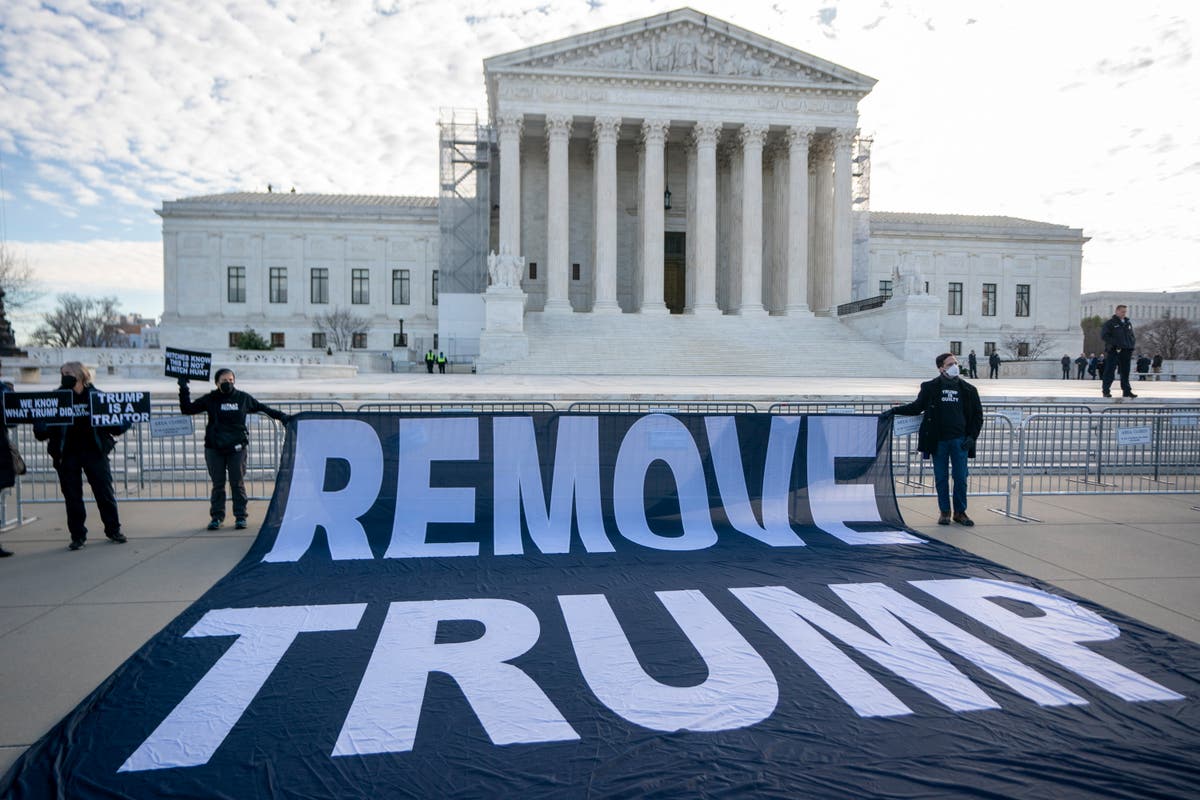The approval rating of the nation’s highest court stands at 40 per cent, according to a new poll
The Supreme Court’s approval rating has plunged to one of its lowest levels yet ahead of a ruling on Donald Trump’s eligibility to run for president.
The approval rating of the nation’s highest court stands at 40 per cent, according to the latest poll released by Marquette Law School on Wednesday.
The latest numbers rival only those of July 2022, when only 38 per cent of US adults said they approved of the Supreme Court and 61 per cent disapproved – just after the Supreme Court overturned Roe v Wade.



There’s a reason for it. We may have made the need for it meaningless, but the reasoning is sound.
The functional part (avoiding incentivizing corruption) could be handled just as well by giving them lifelong pay (and financial reporting). The winds of justice being determined by when an old person dies is not a necessary feature.
They could also be limited to serving for say 10 years without the possibility of a second term. Effectively very similar to a lifetime appointment. There’s no re-election so they don’t have to rule on cases in a political manner. This doesn’t solve the problem of approval rating being completely meaningless, but at least there’s some limit on insanity.
It wasn’t, really. We need to stop attributing some kind of infinite foresight and wisdom to the authors of the constitution. The Supreme Court was a bad idea poorly implemented, the senate as the superior house was a fucking terrible idea, and the independent executive is not defensible at this point.
The authors (who, let’s remember, were working with a 17th century philosophy on the nature of humankind that has since been discredited) were operating on entirely different premises, for an entirely different country, and balancing things like slavery and freedom and democracy versus rule by the elite (the elite were justified to rule by their identity as being elites) by trying to come to a middle ground compromise on those and related issues. It’s really kind of crap by modern democratic, political, and philosophical standards. The only reason it hasn’t been addressed is that we’ve become self-aware enough that we’re terrified that US democracy has fallen to the point that we could only do worse than 18th century slaveholders, landlords, and wealthy lawyers.
To make it explicit, the authors thought that a) the rich would put the country’s interests ahead of their own, b) that selfishness would mean people wanted to protect their branch of government rather than their party, and c) that part b would be a sufficient bulwark against demagoguery. They believed in a world where men (and I mean men, specifically, and rich men in particular) were rational actors who would act in their own self-interest.
Don’t get me wrong - they were reading the scholars of their time - but if political and social science hasn’t made advances in the past three centuries we should probably just give it up.